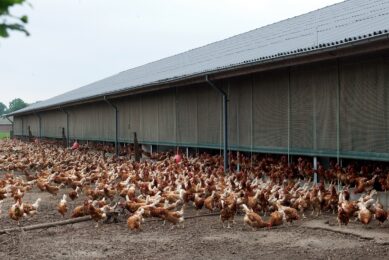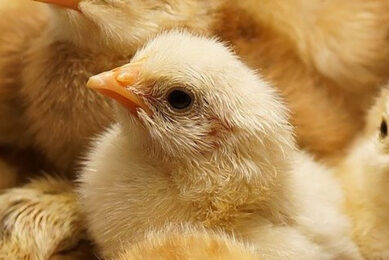Inoculating with combination vaccines could limit AI threat

Researchers in Germany and the US believe they have discovered an effective and inexpensive way to vaccinate poultry against avian flu and help to prevent its spread to humans.
These independent research teams have both successfully attached the gene for avian flu virus onto an existing, widely used vaccine against Newcastle disease. The AI virus was grafted onto the vaccine using genetic engineering.
The Newcastle disease vaccine is cheap to produce, and it can be added to drinking water or applied via spray. The vaccine currently in use costs less than a penny a bird, and the researchers say that the genetically engineered version to protect against avian flu should not cost much more.
The reports appear in this week’s issue of the Proceedings of the National Academy of Sciences.
The researchers have tested the vaccine on chickens, and they say it works very well.
The highly pathogenic H5N1 avian flu has raised concerns, with millions of birds killed in Asia and elsewhere. More than 120 people have died. Scientists worry that the virus will evolve into a form that can be easily spread among people, leading to a worldwide epidemic.
The American team, led by Peter Palese of the Mount Sinai School of Medicine in New York, developed a combined vaccine with Newcastle disease and the H7N7 flu virus, which protected the poultry from Newcastle disease and was 90% effective against the flu.
The German group, led by Angela Roemer-Oberdoerfer of the Federal Research Institute for Animal Health in Reims, combined the Newcastle vaccine with the H5N2 influenza to produce a combination vaccine that protected chickens that were later given potentially deadly doses of either virus.
The Newcastle disease vaccine is cheap to produce, and it can be added to drinking water or applied via spray. The vaccine currently in use costs less than a penny a bird, and the researchers say that the genetically engineered version to protect against avian flu should not cost much more.
The reports appear in this week’s issue of the Proceedings of the National Academy of Sciences.
The researchers have tested the vaccine on chickens, and they say it works very well.
The highly pathogenic H5N1 avian flu has raised concerns, with millions of birds killed in Asia and elsewhere. More than 120 people have died. Scientists worry that the virus will evolve into a form that can be easily spread among people, leading to a worldwide epidemic.
The American team, led by Peter Palese of the Mount Sinai School of Medicine in New York, developed a combined vaccine with Newcastle disease and the H7N7 flu virus, which protected the poultry from Newcastle disease and was 90% effective against the flu.
The German group, led by Angela Roemer-Oberdoerfer of the Federal Research Institute for Animal Health in Reims, combined the Newcastle vaccine with the H5N2 influenza to produce a combination vaccine that protected chickens that were later given potentially deadly doses of either virus.
Join 31,000+ subscribers
Subscribe to our newsletter to stay updated about all the need-to-know content in the poultry sector, three times a week. Beheer
Beheer








 WP Admin
WP Admin  Bewerk bericht
Bewerk bericht